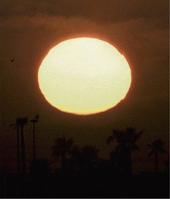
News just in is that women with adequate levels of vitamin D have a higher chance of living cancer-free after early detection and treatment for breast cancer.
What are our best sources of vitamin D? Should we go out now and buy the supplement, or just drink more milk?
Kingston-based nutrioninist consultant, Patricia Thompson, states that our best source of vitamin D lies not in products, but in something far easier to access!
"Our best source of it is sunlight," she states, noting that our bodies can manufacture what we need but the skin needs ultraviolet rays to activate the process.
The news from Reuters in mid-May was that breast cancer patients with lower levels of vitamin D were far more likely to die and far more likely to have their cancer spread than women with normal levels.
The conclusion was that of Canadian researchers, who said that women deficient in the 'sunshine vitamin' when they were diagnosed with breast cancer were 94 per cent more likely to have their cancer spread, and were 73 per cent more likely to die, than women with adequate vitamin D levels, the researchers said.
More than three-quarters of women with breast cancer had a vitamin D deficiency, the researchers, Dr Richard Schilsky, of the University of Chicago and Dr Pamela Goodwin of Mount Sinai Hospital in Toronto, stated.
The study adds to a growing body of evidence that vitamin D, made when sunlight hits the skin and used to fortify many foods, including milk, is important for preventing chronic diseases.
Goodwin's team studied 512 women with a mean age of 50 with newly diagnosed breast cancer treated at three University of Toronto hospitals between 1989 and 1995. They were followed until 2006.
Only 24 per cent of the patients had adequate levels of vitamin D when they were diagnosed with cancer.
The researchers said it would be unwise to take too much vitamin D, which can be toxic. "We don't want to see women taking 10,000 IU a day," Goodwin said.
According to Patrica Thompson, for persons without enough exposure to sunlight (in the tropics these are mainly the elderly), the main food sources are those with some fat, since vitamin D is a fat-soluble vitamin.
Fish liver and its oils, e.g., cod liver oil, eggs, she stated, are naturally rich, and foods fortified with vitamin D are milk, margarine, baked goods and grain products.
Partial source: news. yahoo.com . Email nutritionist Patricia Thompson at patriciat@cwjamaica.com.

